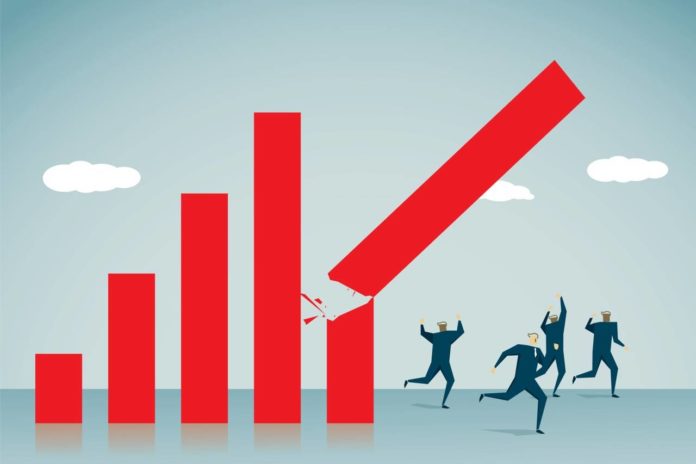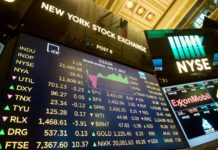Even though it was almost 12 years ago, the 2008 housing market crash is still fresh in a lot of our minds. It caused a rippling effect in the global economy, and Americans were hit particularly hard.
8.8 million people in the U.S. lost their jobs and $19.2 trillion in household wealth vanished in an instant.1
As 2019 comes to a close, home prices have returned to pre-recession levels, and in some cases, they have exceeded those prior ceilings. While on the surface, this news is positive, the rising home prices are outpacing wage growth.2 As a result, home prices in several markets are considered overvalued. Are we due for a crash?
History often repeats itself, and there’s no denying that the market has duplicated a lot of the patterns that preceded the 2008 crash. Rising home prices, a shortage of affordable homes, and a relaxation in mortgage lending requirements are all foreboding signs. Added to that is the fact that more people are flocking to home flipping as a side hustle, and there are clues that disaster could be pending.
Even the online real estate company Zillow is pessimistic about the market going into 2020.3 Despite these indicators, many financial experts are confident that the housing market will stay strong. Though they note similarities between the years leading up to the 2008 crash and what’s happening today, they’re quick to point out that there are vast differences.
Let’s take a closer look at three similar patterns and the experts’ arguments about why things are different as we head into 2020.
1. Rising Home Prices and the Lack of Affordable Housing
In 2018, the national average for home prices hit an all-time high. It’s now 10% higher than the previous 2006 record.4 The building industry is also bullish, with stock prices for home builders on the rise.
As home prices have risen, so have rents. As more people are priced out of buying a home, they turn to rentals, driving up demand. As a result, low-income and affordable housing units are in short supply.
Financial analyst firm CoreLogic says these prices are not sustainable, but a closer look at what these prices mean gives a more realistic viewpoint. According to Seeking Alpha, when you adjust for inflation, today’s home prices are not at record-setting 2006 levels. Instead, they’re at rates equivalent to 2004.5
The lack of affordable housing has also been addressed. The cities that have seen the largest decline in affordable rentals are those that have become a destination for new residents. For example, when Colorado legalized marijuana, the number of affordable housing units dropped by a whopping 77%.
So, even though home prices seem high, they’re in line with prices that existed before the boom. And as far as affordable housing goes, the principle of supply and demand is at work. Prices naturally rise in areas that are desirable to live.
2. Interest Rates
Even when home prices are relatively high, they’re still affordable as long as interest rates are low. However, since 2015, the Federal Reserve has put interest rates on a slow but steady upward path.
This policy ended up having an unintended boomerang effect. It caused a spike in demand in 2015 when savvy buyers knew the rate hikes were coming, and then demand slowed to a trickle.
In response to the slowdown, the Fed decided to lower rates in July, and they could dip even further.
In the 2008 crisis, the Fed was slow to react to interest rates, and they erred on the side of keeping them artificially low. Some say that the Fed has learned its lesson and knows to be more responsive to a crisis.
3. Lending Criteria
At the peak of the housing market in early 2006, lending criteria were lax. Anyone with a pulse was eligible for a mortgage. The term NINJA loan was coined to mean an applicant with “no income, no job, and no assets.”
People were entering homes with no money down and paying only the interest on the loan, no principle. Some even agreed to massive balloon payments, which are usually reserved for commercial real estate. These balloon payment mortgages left buyers with balances they couldn’t afford to pay. Buyers (and bankers) naively thought that as long as housing prices continued to rise, anyone who had trouble paying their mortgage could sell off the property for a profit and go on their way.
The unexpected collapse of the market due to how these loans were structured and the disaster of subprime mortgage-backed securities (bundling risky loans together and selling them to investors) caught almost everyone off guard.
Despite the loosening in lending criteria that we’re seeing again, banks are not being as irrational as they were prior to 2008. Further, even though mortgage-backed securities are still legal and in use today, they’re not being used at the scale they were years ago.
Bottom Line: Overall, financial analysists are cautiously optimistic about the real estate marketing continuing its upward trend, though there are situations that could accelerate a collapse.
For example, if the yield curve on U.S. Treasury notes becomes inverted, then short-term interest rates are higher than long-term rates. This indicates a belief that short-term investments are risky, and the economy responds in turn, usually with a recession. Be on the lookout if you see this pattern shift.
Tax reforms, flooding, and rising sea levels are also potential dampeners on the housing market. The Trump tax reform plan is said to have cost homeowners one trillion dollars, though the math depends on who you ask, and the results on the housing market have yet to be seen.6 Flooding and rising sea levels, though imminent and problematic, are also longer-term issues and aren’t likely to affect home prices in 2020.
So, when is a crash forecasted to occur? According to one Harvard professor, the magic year is 2026.7 He arrived at this number by determining that economic cycles happen in 18-year increments. Given that our last significant correction was in 2008, then 2026 could be the year we see a crash.
- https://www.treasury.gov/resource-center/data-chart-center/Documents/20120413_FinancialCrisisResponse.pdf
- https://housemethod.com/real-estate/what-overvalued-housing-market-means/
- https://www.investopedia.com/investing/next-housing-recession-2020-predicts-zillow/
- https://seekingalpha.com/article/4097882-definitely-not-in-housing-bubble
- https://www.thebalance.com/is-the-real-estate-market-going-to-crash-4153139
- https://fortune.com/2019/10/10/how-trump-tax-bill-affects-homeowners-middle-class/
- https://www.extension.harvard.edu/inside-extension/how-use-real-estate-trends-predict-next-housing-bubble








